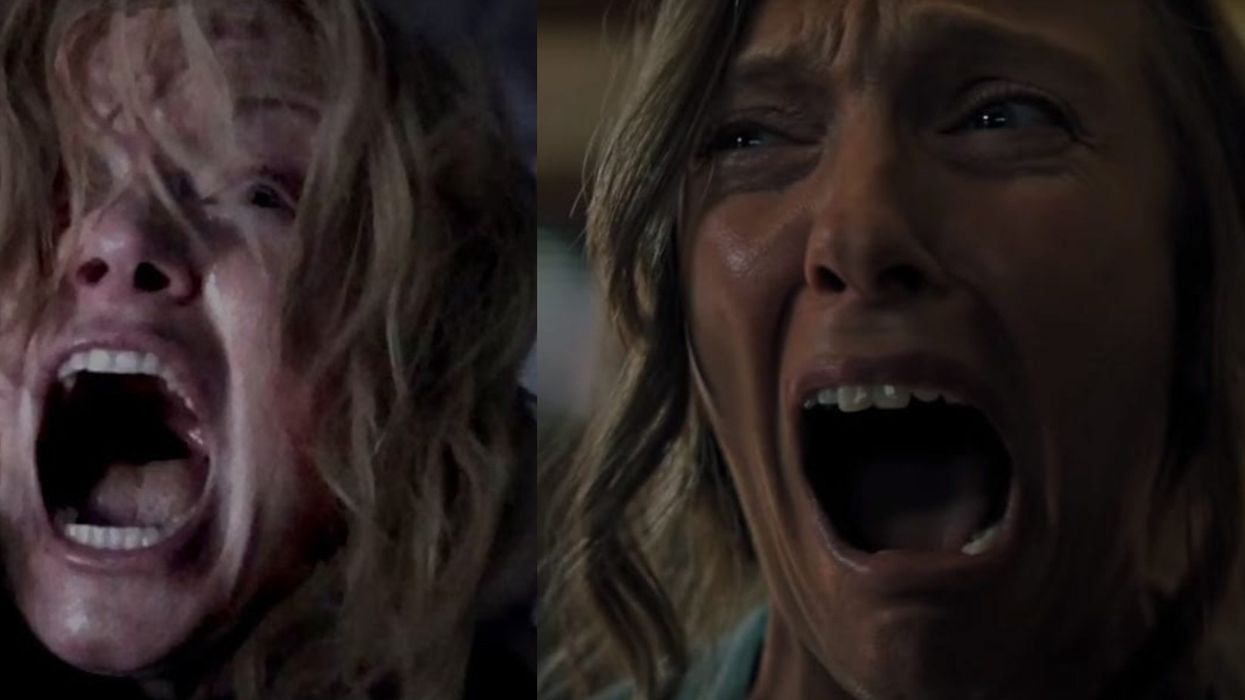How 'Hereditary' and 'The Babadook' Showcase the Horror of Family [Video]
Some amazing independent horror films have emerged in the genre recently, and two stellar examples are "Hereditary" and "The Babadook".

Both were Sundance standouts, and both were the debut features for writer/director Ari Aster and Australian writer/director Jennifer Kent, respectively. Both are shot and directed beautifully and feature incredible performances, especially from their female leads. And both have had an enormous impact on horror and film as a whole.
Richard DeZerga's recent video examines what makes these two films so strong. Check it out below.
[Editor's note: Spoiler warnings for both Hereditary and The Babadook, as well as content warnings for horror imagery and violence.]
The importance of uncomfortable family dynamics
The video starts with one of the most important elements not only in these films but in storytelling as a whole: characters. Both movies feature exemplary casts and extremely well-developed characters, and the stories are driven by the drama within two families. This drama is fueled by conflicts that break with expected familial relationships, which puts the audience on edge.
In The Babadook, Amelia Vanek (Essie Davis) is a widow struggling to bring up her son, Samuel. Her husband died driving her to the hospital to give birth to Samuel. The boy starts behaving strangely and becomes obsessed with a storybook about the titular monster, which then begins tormenting them at home. The uncomfortable conflict in this film arises because Amelia does not fully love Samuel and feels trapped as his mother.

In Hereditary, Annie (Toni Collette) spirals after not only the death of her elderly mother but the violent and sudden death her daughter, Charlie (Milly Shapiro). Their family is haunted by grief, but also by forces outside the home as an evil group plots against her surviving son Peter (Alex Wolff). The conflict here is similarly uncomfortable: Annie blames Peter for Charlie's death and hates him. Later, it's revealed Annie didn't even want to have Peter and tried to miscarry while pregnant with him.
These relationships and characters set up grim dynamics and make for lots of troubling drama, which is perfect for horror films.
Creating atmosphere
This is an element that is particularly important to horror. If you think of some of your favorite scary movies, you probably are considering the look and feel of them. They're usually dark, with rich blacks and spooky lighting. The settings are probably creepy, too—lonely, old houses, labyrinthine woods, empty towns—typical haunted locations.
Atmosphere is one thing that both Hereditary and The Babadook accomplish very well. Both movies are set in large homes with lots of nooks and dark corners. The Babadook hides in the background of multiple shots in his movie, while Hereditary plants clues about what will eventually happen to its family throughout the film.
Ambiguous storytelling
Neither movie is explicit about what exactly is going on a hundred percent of the time. And that's okay. This invites the audience to be part of the storytelling process and bring individual interpretations to a film.
For instance, Hereditary kind of goes off the rails (in the best way) in the third act. You don't know what all the coven/cult members are doing, and why Annie is now crawling all over the ceilings, but the ride is so enjoyable as you're trying to figure it all out, it doesn't really matter. The Babadook is even vaguer. Does the monster exist only in Amelia's head as a manifestation of her grief or is he a corporeal demon out to destroy her family?
Again, this kind of storytelling engages discussion and helps the films find a life outside the movie theater. It also means both films are a joy to rewatch, because viewers can catch new details every time.
Sticking the landing
Both movies end spectacularly. The Babadook's finale is quieter and contained, as the rest of the film is, and ends with mother and son reconciling and defeating their monster. Hereditary, as mentioned, goes wild. It's probably the more "traditional" horror movie ending—gruesome, disturbing, and devastatingly creepy.
Both movies manage to resolve all the threads of their stories while still leaving some elements up for interpretation, which is a massive feat.
What's next? Get ready for new movies from Aster and Kent
Aster's follow-up is Midsommar, which is already generating buzz. It will be released on August 9th. Kent's newest project is The Nightingale. It will get a theatrical release on August 2nd.
Source: Richard DeZerga











